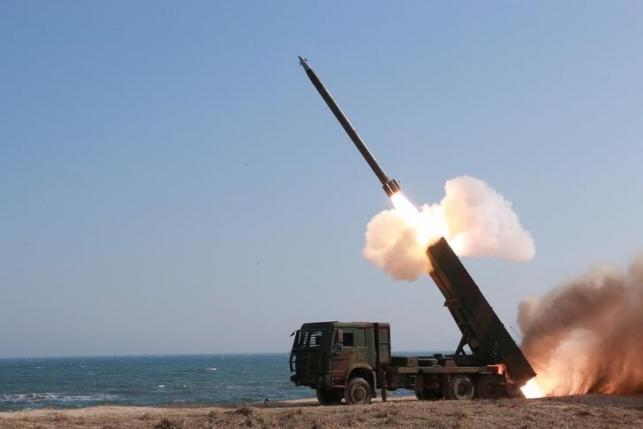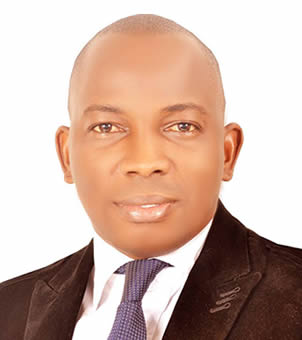Today, Indonesian has the 9th largest economy in the world with industrial and services sector contributing about 47% to its GDP. The country is remarkably the leading producer of oil palm in the world with 33million tonnes in 2015, an enviably position Nigeria occupied in the 1960’s. In this exclusive interview with kingsley Okeke and Ehis Ayere of African Leadership Magazine, Mr Harry Purwanto, the Indonesian Ambassador to Nigeria shares the exemplary industrial path of Indonesia, and how both countries can take advantage of their bilateral relations to diversify their economies and spur growth, particularly in the agricultural sector. Excerpts:
Thank you very much your Excellency; If you do not mind, you can tell us your name and designation.
Thank you. My name is Harry Purwanto. I am the Indonesian Ambassador to Nigeria; and the Ambassador accredited to Benin, Togo, Ghana, Liberia, Burkina Faso, Niger, Gabon, Congo Republic, Sao Tome and Principe, and ECOWAS.
The bilateral relationship between Nigeria and Indonesia has been growing exponentially over the years; as at today, the trade volume with Nigeria is over 4.6billion dollars. What is your embassy doing to consistently promote trade between both countries?
First of all, Indonesia bilateral relations with Nigeria is over 50 years; it started in 1965. We have always been enhancing our relationship bilaterally because we share commonalities; we share ideas, we share political outlooks. The two countries are members of the Non-aligned movement, the OIC (Organisation of Islamic Countries), as well as multi-lateral and global forums. Indonesia and Nigeria sit at the same position with determination and responsibilities in contributing and proffering some solutions to regional as well as global issues. The two countries are also very active in peace keeping forces, among the largest contributors in peace mission operations around the world.
We share economic potential and complementarities. Apart from that, we also see some interactions between Indonesian and Nigerian business people taking advantage of the bilateral relations between the two countries. This is why we see some business community from Nigeria trying to find some Indonesian products; as well as Indonesian business people contributing to Nigeria economy by establishing manufacturing companies operating in consumer product, petrochemicals, and agriculture.
For Indonesia, Nigeria is an important country because we import Nigerian oil; it is about 18 percent of Indonesia’s oil consumption. This is quite significant. We even buy Nigerian oil from market in third countries. With the recent change of government in Nigeria and in Indonesia as well, we try to see if there is a possible a G-to-G in dealing with the oil.
With the decrease in the price of oil, it is a good opportunity for both countries to diversify their trade-relations as well as cooperation. While Nigeria is very committed to developing other sectors other than oil, Indonesia has already done that. Indonesia used to rely on oil. But since the 80’s, we have been diversifying the economy and now industries and services contribute around 47% to the Indonesian GDP (Gross Domestic Products: oil is no longer a prime source of our revenue. We are developing several industries as well as the agricultural sector.
The technology and experience that we have is easily applicable to other developing countries, to create jobs, and strengthen the business community, particularly the Small and Medium- Scale Enterprises (SMEs). This is why the Indonesian economy is still strong despite the global economic crisis because SMEs are growing in numbers.
From statistics, Indonesian middle class is growing very fast. Out of the 254 million Indonesian people, we have 160million middle class with very vibrant and robust purchasing power. The Indonesian economy, according to the World Bank in 2015, is the 9th largest in the world by GDP. This projection is going up and some experts have predicted that it will become the 5th largest economy by year 2050.
Wow! That’s quite interesting.
Yes. We can also see clearly that Nigeria is also growing as well; and it is capable of becoming one of the 10 largest economies because of its potentials. The two countries are blessed with abundant resources- natural and human resources. In natural resources, we have the renewable resources where we have agriculture and the non-renewables where we have mining.
In Indonesia, we try to intensify our agricultural sector. We cannot expand the earth, or our territory, but we can expand the productivity of crops. So, we make the productivity much higher; we replace the palm oil trees with more productive ones. Otherwise, we will not be getting much advantage of the soil.
Another thing Nigeria can learn from Indonesia is that we really focus our economy on harvesting and extracting from the resources. Therefore, we had to review our economy. In order not to rely on our resources alone, we have to do the human resources more. With human resources, we can add more value; make our production more efficient; we can also reduce our logistics and transportation costs; It will also make us more creative in innovation. In the world now, those who happen to become very strong, big and faster are those companies dealing with ICT. I think the next decade those who will be able to take advantage of ICT are those who are going to win in the global trade. That’s why we had to enhance our global trade competitiveness. We have two big programmes on human resources: Education and Healthcare Systems.
This is why we are developing good systems in healthcare from the big cities to the villages. In the villages in Indonesia, you will find small healthcare centers run by doctors who graduate from medical school- performing their obligatory work for those small healthcare centers for a year before they continue their career. We consider education equally important. When we have healthy young people who are not exposed to good education they will not become real human resource, they will become a liability. So we need to transform them to real human resources.
On infrastructure, we also understand that to make our economy active, providing real benefit to the people, we need infrastructure. We need roads, and ports among others, to enhance connectivity between those thousands of island and those within the island. If there is no infrastructure, the economy will not move. And people still living in poor condition. By infrastructure, we need electricity; power we can create industrialization; and reduce cost of doing business.
In terms of management, we try to be more efficient, accountable, and transparent. We try to make our administration more accountable; our regulations are regularly reviewed. And change the mindset of the people. I think that’s what President Buhari is doing to make the country work.
The people-to-people and business-to business relations between Nigeria and Indonesia is the heart of our bilateral relations. Making things more tangible and practical are the result of these relations. The Indonesian embassy in Nigeria tries to make some effort in creating more awareness in Indonesia about Nigeria, and to create awareness about Indonesia to Nigerians.
Tourism is one thing we try to boost now. We are trying to enhance our capability in tourism because tourism contributes about 10% to our GDP. The sector has created around 25- 30 million jobs in Indonesia. We believe if we are good in tourism, we will be good in other sectors- such as security and infrastructure. To get a thriving tourism sector, we have to improve our security and infrastructure. Even with our good tourism destinations, without good security and infrastructure, the sector will not thrive.
You have really touched a lot of issues. One of the major areas of strength of your country is agriculture. Like you said earlier, the drop in the price of oil is one reason Nigeria is frantically looking for ways to diversify its economy; particularly to agriculture. The current administration in Nigeria has said the sector is capable of creating over 3million jobs in 2016 alone. And Nigeria is looking for help from many experienced countries. My organisation- the African Leadership Magazine- has actually put up a programme, which is the NIGERIA-INDONESIA AGRICULTURE SUPPORT PROGRAMME, through which we have facilitated the training of a number of people from Ebonyi and Cross River states of Nigeria in Indonesia for competency and capacity building. Going forward, how do you see your country helping Nigeria to build competency and capacity in agriculture and farm production?
Indonesia can learn something from Nigeria as well. Indonesia palm oil, for instance, originated from West Africa, particularly Nigeria. Nigeria was the largest palm oil producer in the 60’s. Now, Indonesia is the largest producer of oil palm with 33million tonnes in 2015. We try not to export our raw materials; we try to push our industry to make added value and export the added value. Indonesia’s agriculture sector is in line with our food security not only in creating jobs, because feeding our 254million population is not easy.
Therefore, we employ technology in planning our agriculture. Currently, the agricultural sector only contributes 15% to our GDP. But the current president of Indonesia wants to increase the percentage of agriculture. We try to inject new technology in making our agriculture more productive. We want to have more crops from the same size of soil. We are building about 13 new dams which will be completed by 2019; and afterwards, we plan to build another 49 dams which are for irrigation and power. The incumbent president has planned that Indonesia will have another 35, 000 megawatts of electricity by 2019. We understand that this is a big project. So the government needs the contribution of the private sector. The government will provide 60%, while the private sector will provide the remaining percentage. Our electricity growth annually is 6%.
In farming some staple food crops like rice, tomato, and soya bean, Indonesia has developed some technology. We even use nuclear technology to develop new type of rice which is more productive. In Indonesia, cassava can become anything; we can produce plastic bag from cassava. Other things like Ice cream and cake can also be made from cassava.
Nigeria is already on the Indonesian business radar. Some months ago, a group of high ranking government officials from the Indonesian ministry of industrial affairs came to Nigeria to collect information with the possibility of establishing in Nigeria the industry special to Indonesia. They try to find out areas where Indonesia industries can be established and Indonesian products can go. They discovered that industrial areas are not only under the federal authority but under the state’s authority as well. They got some a list of Nigeria industrial areas of specialties, such as agriculture, fertilizer, petrochemicals, among others, from the Nigerian Investment Promotion Commission (NIPC).
Thank you very much your Excellency. You have really taken time to dissect the Nigeria-Indonesia relations from your wealth of knowledge and experience.
We need to join our hands together to get a win-win solution. In the days to come, I see not only the challenge, but opportunities. The two countries need to take advantage of our bilateral relations. This is why the embassy is open to everyone in Nigeria. I think people like you are a real bridge to our bilateral relations.
Nigeria’s Opportunity Is Now…
24/03/2016- 0



